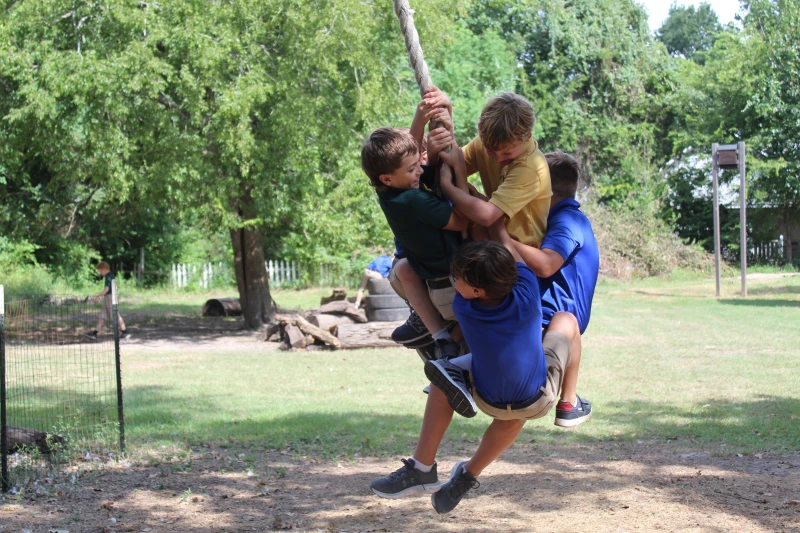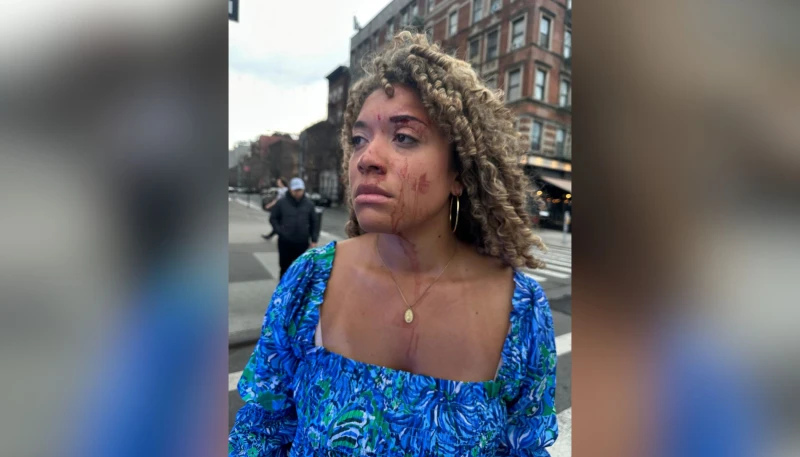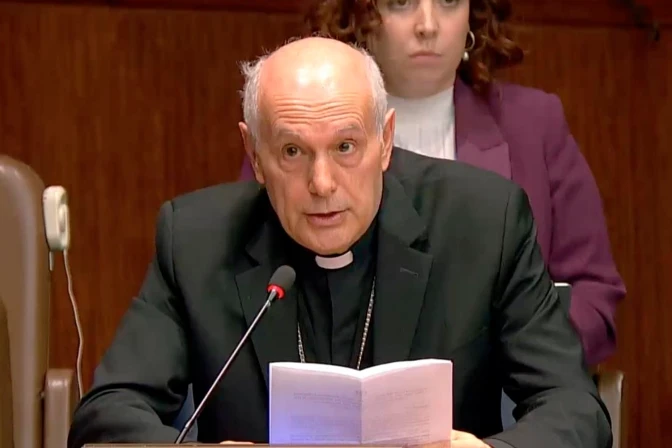

Boys swing on a rope during recess at Western Academy in Houston, Texas. / Credit: Courtesy of Western Academy
Houston, Texas, Oct 4, 2025 / 06:00 am (CNA).
After years of boys (and their parents) repeatedly ignoring the rules, a private boys school in Houston is taking a novel approach to its smartphone and digital device policy: Bring it to school, and “we will destroy it.”
Western Academy, an independent, liberal arts school that states its goal is to educate young men “in the good, the true, and the beautiful,” has never allowed students to bring electronic devices to school.
In the past, if a boy was caught with a phone or other device at the school or a school-sponsored event, faculty would confiscate the device, which would be returned to the parents only after they had met with headmaster Jason Hebert. He would explain the harms to boys caused by smartphone use and why parents “should not put the phone back into your son’s hands.”

Under the new policy, which Hebert laid out in a four-page letter to parents last month, after the device is discovered and destroyed, the boy will be suspended. If it happens again, the boy will be automatically expelled.
Along with its singular smartphone policy, the school, which has 230 students in third through eighth grade, takes a unique approach to education. The boys are free to play throughout the park-like, rambling grounds, where they climb and swing from trees, build forts, shoot Nerf guns, and care for (or chase) chickens before and after school and multiple times throughout the school day.
The all-male faculty expects respect and responsibility from the boys at a young age, according to Hebert. The teachers have the boys rise when an adult visits a classroom and encourage parents to let their sons learn to endure hardship and experience natural consequences when they forget their homework or their lunch at home.

A Catholic priest of the Prelature of Opus Dei serves as chaplain to the school, which was founded in 2010, and oversees the religious education program.
The model is popular: Even with middle-school tuition close to $28,000 a year, every grade has extensive waitlists, and the school may start wait-listing boys beginning as early as kindergarten.
At the beginning of each school year, the boys are sorted into one of four houses that compete throughout the year in games such as capture the flag and “The Hero’s Race,” where the boys in each house choose one boy to race across campus, climbing over obstacles and crawling through mud. There is also a poetry recitation competition known as “The Bard.” One mother, Stephanie Creech, told CNA her sons are so happy at the school they “beg to get to school early and to stay afterward to play.”
Hebert sat down with CNA and discussed what brought about the change in the smartphone policy, saying he chose the words in his letter very carefully.

Witnessing the damage
“Smartphones are causing significant, unimagined damage to the students who have them,” Hebert wrote in his letter to parents, “as well as to the sons of those parents who have chosen not to give phones to their sons.”
“The damage these phones have caused to our children,” he told CNA in the interview, “it literally has never been imagined.”
“It’s not just pornography,” Hebert continued. “YouTube actors and other characters just trying to get clicks perform the most shameless actions on video. They just have zero respect for the dignity of their bodies and for life, zero. And these boys want to emulate these people.”
Hebert said the last straw came after a mother called him complaining her son saw a graphic, violent video on a smartphone at a school event.
After that, Hebert said he and the other administrators agreed: “That’s it. We’re done.”
Asked why the school did not just consider automatic expulsion after the first offense rather than the destruction of the devices, Hebert said with a laugh: “To be perfectly candid, I want to destroy the phone. I want to give the boys an opportunity to have life without it.”
He ordered a metal grinder for the purpose.
“Look, I am not an alarmist. I am not reactionary. But the bottom line is this: These devices are not neutral. The research is definitive: They are bad for our kids. I have dealt with hundreds and hundreds of boys over two decades in education and I have yet to see an exception to this,” he said.
Hebert said that over the years, he has noticed a degradation in the quality of the boys’ conversation. “You can’t imagine the level of shamelessness” among some of the boys,” many of whom are generally considered “good kids.”
“This type of behavior is unprecedented in my tenure as an educator, and even as a professional athlete,” he said.

In the early 2000s, before beginning his teaching career, which included teaching at The Heights School in Maryland, he spent one year as a professional football player on practice squads for three NFL teams: the Chargers, the Titans, and the Raiders.
“I never played in a regular-season game. This is what I tell people: I made it to the NFL. I did not make it in the NFL,” he said, laughing.
“Let me make it clear: I was an athlete around some of the most earthy human beings on the planet,” he said. “These men were not ashamed to say anything in the locker room. Yet these same men would have blushed if they heard some of the things these boys talk about! This is so unimaginable. Yet it is becoming more common now, thanks to these devices.”
Parents on board
Asked if he was worried parents would leave over the school’s new policy, Hebert said if parents are not on board with the school’s values, it might be better if they left and one of the many others on the waitlist could take their spot.
In his letter to parents, Hebert wrote that the “school is a true partnership with parents. We say this not for poetic effect, but because it must be so for the authentic growth of your sons to become a reality.”
He told CNA parents should ask themselves: “How valuable is the phone to you? Are you willing to leave this place for it? This place where your son is so abundantly happy? Is your phone worth that? And if it is, well, it’s a mismatch of vision.”
Since the change in policy, however, Hebert said parental response has been “100% positive.”
After hearing about the school’s new policy, a mother whose son graduated from the school several years ago dropped off a financial donation at the front desk recently “for the phone grinder.”
“Everybody just knows it’s right. Parents might be frustrated because saying no to their sons makes their lives harder, but they know it’s right,” he said.
Hebert, a father of seven, said he and his wife do not allow their children to have smartphones or social media. “My children may not know a lot of the lingo or some of the jokes or about all the parties. They’re on the outside, to a degree.”
“And even though that’s a big deal,” he continued, “the alternative overrides that. It’s a bigger deal.”
“The alternative is not worth it,” he said.
“We all want the truth,” he said, “and the truth is these devices are severely hurting kids. I’m not a doomsday guy, but some day these kids will be in charge of society. Think about that.”
Read More





